Mick Malthouse: Bad behaviour, mental health, social media – AFL youngsters walking a tightrope
In 2008 Heath Shaw and Alan Didak were suspended on the eve of the finals. Was it the right call? Mick Malthouse weighs in on how to handle behavioural issues.
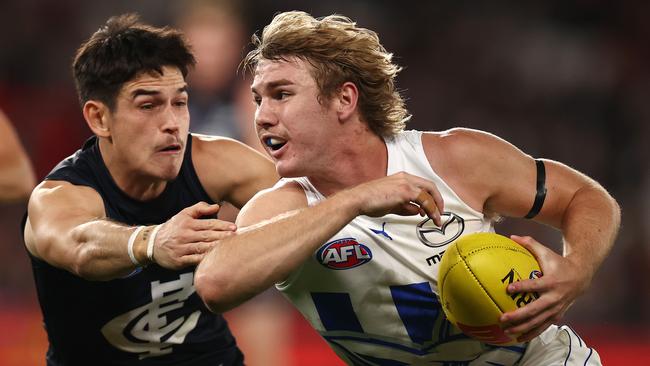
I once read a quote from an Australian court judge who said: “Lock up your sons until they are 25.” She basically meant, until their brains mature and they can make better decisions.
And yet here we are with hundreds of young men in the AFL ranging in ages from 18 to 30-odd, and we expect none of them to ever make a mistake. It’s just not realistic.
But an immature brain doesn’t excuse bad behaviour either, so where does that leave us?
When we bring a group of young men together from diverse environments, socio-economic backgrounds, educations, and cultures, there’s going to be a difference of opinion, different levels of intelligence and maturity, tension, conflict. All of the above.
Watch every blockbuster AFL match this weekend Live & Ad-Break Free In-Play on Kayo. New to Kayo? Try 14-Days Free Now >
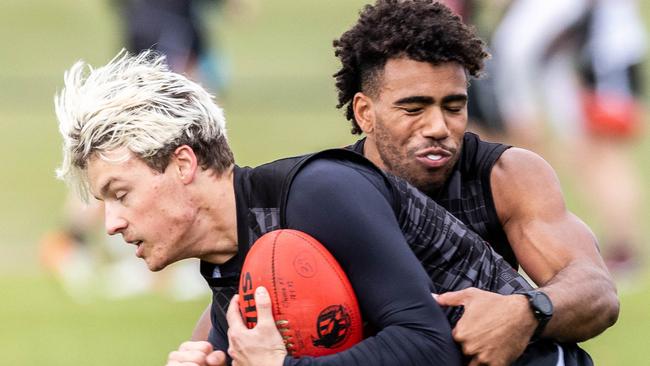
You don’t need a university degree to be a good footballer. You’re born with a talent for football and it’s how you discipline that talent that determines how far you go.
The football club plays a huge role in educating and supporting these boys through their formative years because they are often away from family and peers who would normally do so.
Which is why, when someone mucks up, makes a mistake, acts recklessly or carelessly or disrespectfully, or crosses the legal line, off the field, it becomes a tricky situation to navigate.
There are multiple factors in determining a player’s consequence or penalty for doing the wrong thing. A whole host of components that the media and public don’t often realise before they put the boot in.
The club will always take into consideration if the player has broken the law. If other people were involved and affected. If the game has been brought into disrepute. If it is a repeat offence. The age and mental maturity of the player.
There is an element of setting a standard, while also determining how the penalty will affect the individual going forward, the other people involved, the playing group, the club, the supporters.
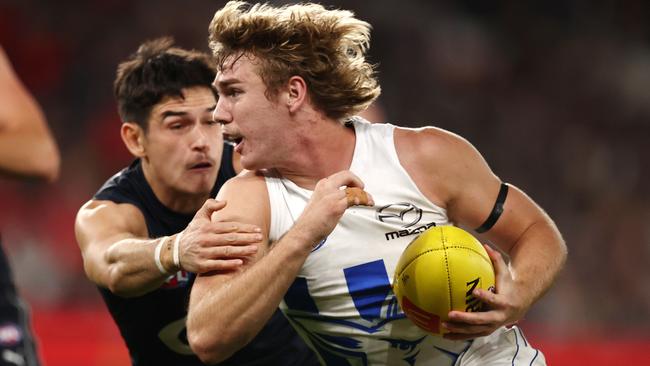
Because there is more at play here. In such a high-profile public forum there are not just careers on the line, but lives, too.
Jason Horne-Francis is an 18-year-old boy who showed on-field frustration by striking an opponent, and human emotion by visiting his mum in Adelaide for Mother’s Day.
The social-media eruption for those two incidents was ridiculous.
He is a young man just out of school, away from his family and playing in an environment where his club is under enormous pressure and he is unfairly supposed to be the saviour.
Talk about stress.
There is a duty of care here in relation to mental health.
It takes an enormous amount of discipline and sacrifice, day and night, to maintain the standards required to play sport at an elite level. These footballers earn good money because in their short careers they are constantly under scrutiny. Always being judged, questioned, pulled apart, and in demand. It can become quite debilitating at times.
Social media has exacerbated that focus and feedback. There’s nowhere to hide after a bad game, let alone if he gets into trouble off-field, especially when it’s caught on camera as everything is these days.
When a player breaks the trust and disciplines of a football club it affects everyone from his teammates through to the supporters, but should they be penalised too?
While we don’t condone any of the recent questionable behaviour of several AFL footballers, we must be careful how we judge these young men in today’s society.
And even more careful in how far their penalties stretch.
In 2008, Heath Shaw and Alan Didak were suspended by Collingwood on the eve of the finals for an off-field drink-driving incident. At the time the penalty felt warranted, but in the end it hurt the team and hurt the club.
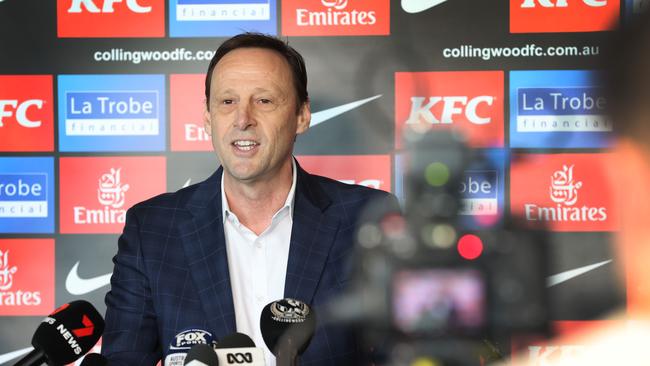
It’s hard enough to lose players through injury, but to miss them for actions away from football is a harsh punishment for all, supporters included.
Didak and Shaw are two of the most wonderful and outstanding young men, and perhaps that lesson helped them mature, but it also cost the Pies a final (sports editor’s note: Collingwood lost its 2008 semi-final to St Kilda by 34 points after beating the Saints twice during the year).
These decisions are tough.
You can’t be suspended for being an idiot. Jack Ginnivan and Isaac Quaynor have learnt a lesson this week. But you can be suspended for breaking the law or bringing the game into disrepute, like Bailey Smith, and Steven May and Jake Melksham.
The league intervened in these situations and sanctioned the penalties.
Jordan De Goey is a repeat offender. Unlike his harassment case which was heard before the US court of law late last year, there was no police or law involvement in Bali, so it becomes a social issue for Collingwood and De Goey to sort through.
The suspended fine won’t hurt De Goey as much as the likelihood that he won’t attract the same interest, or income when his contract is up for renewal. He has established a reputation that he has to live with.
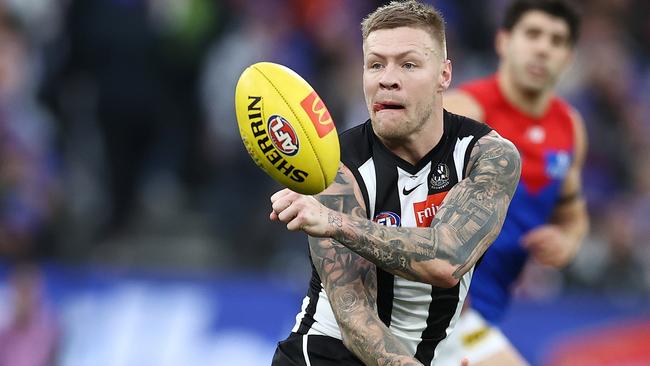
Collingwood chief executive Mark Anderson was on the front foot by addressing the issues publicly and immediately this week, and rightly so — whether people agree with the penalties or not. The three Magpie players have all made formal, public apologies.
At Melbourne we didn’t hear from the CEO, president, or the players involved in a public fight.
Bailey Smith was forthcoming and apologetic before he was suspended by the AFL for “conduct unbecoming”, and there is no doubt the Western Bulldogs have been working strenuously behind the scenes to address the illicit substance issue.
No one looks after the health of its players better than the club itself. If there isn’t a specialist onsite, someone is contracted in, so there is no question Smith is receiving support and education behind the scenes.
And hence we come back to the issue at hand: when a player is involved in an off-field incident, how should the club handle it? There clearly isn’t an easy, one-fix-fits-all answer.
Dane Swan was a classical case at Collingwood. When he first came to the club he was involved in a couple of incidents that didn’t sit well with me or the football club.
I’m sure he won’t mind me saying that at the time I suggested he move away from the “mates” who had a negative influence over him. By moving, just a couple of suburbs away, “Swanny” started producing his best football and stayed out of trouble.
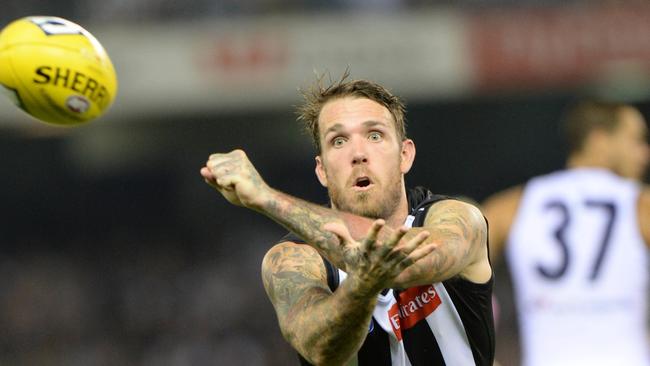
Again I am reminded that these footballers are young people with friends who are out and about without similar restraints or restrictions.
Therefore they need to find out who their true friends are, the ones who support them in their endeavours to play their best football.
There is a worry that some so-called friends only want to pull them back into the pack, because they don’t have the discipline required for elite sport.
Having just come back from a 30-year reunion for West Coast’s 1992 premiership I was struck by how diverse that group was.
Over the years it gave me a great sense of pride that the playing group gelled so well in effort to achieve greatness.
It takes a village to raise a child, just as it takes a whole club, a whole league, to keep a young footballer on track. Let’s remember that.






To join the conversation, please log in. Don't have an account? Register
Join the conversation, you are commenting as Logout